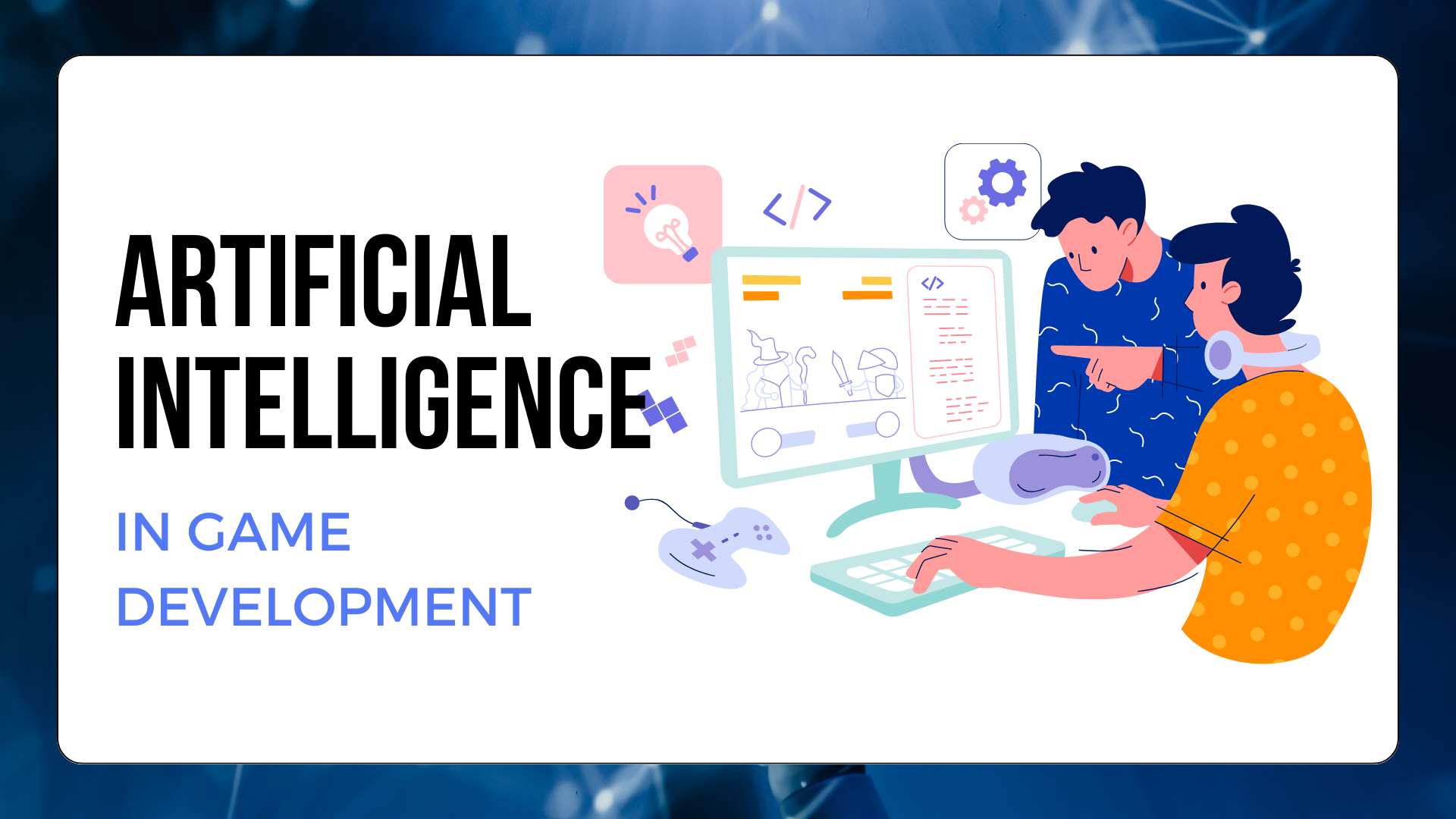Artificial Intelligence (AI) in game development is no longer a futuristic concept. Game developers and video game publishers alike are utilizing this technology to revolutionize the industry. The transformative effects of AI on various aspects of game development, such as game design and mechanics, are increasingly evident.
We are only just beginning to tap into the potential of AI to disrupt established industry trends. The game development landscape is ever-evolving, thanks to the integration of AI.
So, let’s embark on an exciting journey to discover the 15 major impacts of AI in game development.
15 Revolutionary Impacts of AI on the Future of Gaming Development
1. Procedural Content Generation
One of the revolutionary impacts of AI in game development is procedural content generation. AI algorithms have the ability to generate vast and diverse game worlds, levels, and quests.
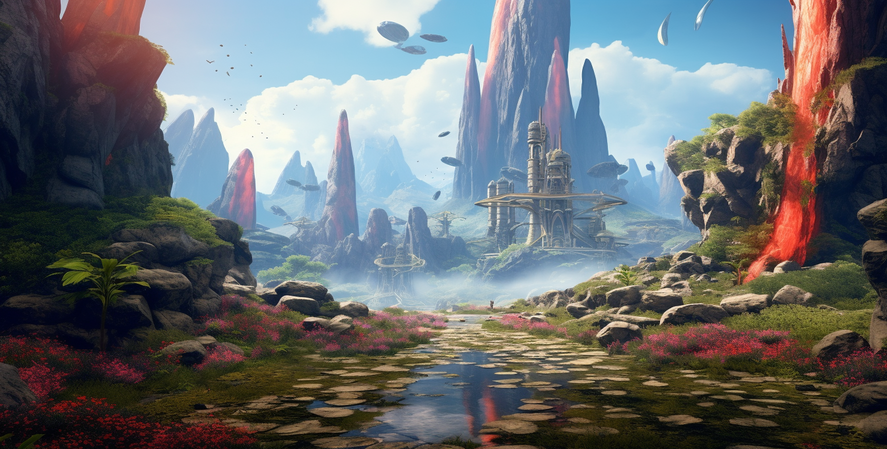
AI can create diverse landscapes, complex levels, and engaging quests, giving players fresh experiences each time they play.
This technology benefits game developers and publishers in multiple ways:
- Increased Creativity: AI enables game designers to explore new possibilities and generate unique content that goes beyond manual creation. This leads to more innovative and immersive gaming experiences.
- Reduced Development Time: With AI handling the generation of game content, developers can save valuable time and resources. AI algorithms can create complex environments quickly and efficiently, allowing developers to focus on other aspects of game development.
2. Intelligent Level Design
AI can also assist in creating intelligent and adaptive game levels. By leveraging AI algorithms, developers can optimize level layouts and provide personalized player experiences. Here’s how AI-driven level design impacts game development:
- Dynamic Level Design: AI algorithms analyze player behavior and adapt game levels accordingly. This ensures that the game constantly challenges and engages players, as it adjusts to their skill level and preferences.
- Optimal Level Layouts: AI can optimize the arrangement of objects, obstacles, and enemies in game levels. This leads to a better-balanced gameplay experience, enhancing player satisfaction.
3. Smart NPC Behavior
AI-powered Non-Playable Characters (NPCs) can exhibit more realistic and dynamic behavior, greatly enhancing the immersion of players.
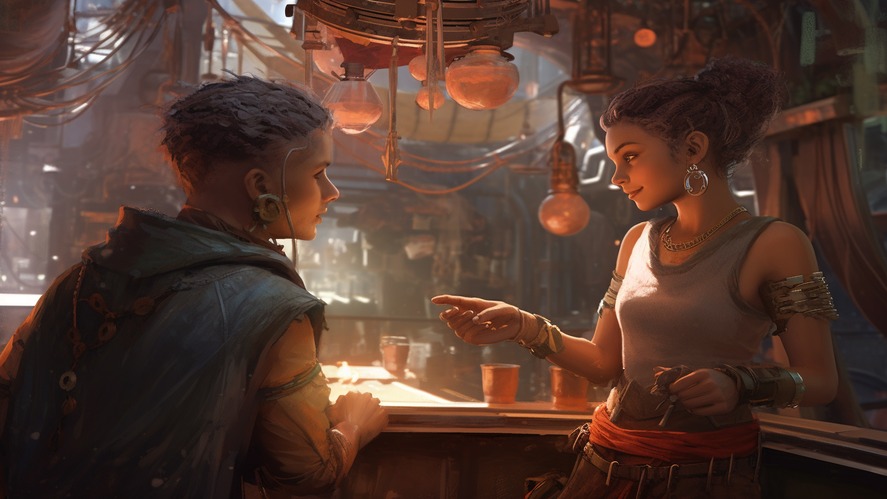
Thanks to AI game characters, players face more challenging opponents. It increases the complexity and engagement of games, making the gaming experience more thrilling and enjoyable.
Here’s how AI impacts NPC behavior in games:
- Realistic Opponents: AI algorithms can create challenging opponents that adapt their strategies based on player actions. This adds depth and complexity to gameplay, making it more engaging and rewarding.
- Enhanced Immersion: With AI, NPCs can display emotions, make decisions, and respond to the player’s actions in a more lifelike manner. This creates a more immersive and realistic gaming experience.
4. Realistic Physics and Simulations
AI in gaming doesn’t stop at characters and levels. It also improves in-game physics.AI technology can enhance physics engines in games, resulting in more realistic in-game physics. By simulating complex phenomena and interactions, AI algorithms provide the following benefits:
- Authentic Interactions: AI enables objects and characters to interact with the game environment in a realistic manner. This enhances the overall gameplay experience by making it more believable and immersive.
- Simulated Complexity: AI algorithms can simulate intricate physical systems, such as fluid dynamics, destruction, and weather effects. This adds depth and realism to the game world, providing players with a more captivating experience.
5. Automated Bug Detection and Quality Assurance
AI plays a crucial role in identifying bugs, glitches, and performance issues during game development. By automating testing processes and improving quality assurance, AI algorithms contribute to overall game stability. The impact of AI in game testing includes:
- Efficient Bug Detection: AI algorithms can quickly identify bugs and glitches, enabling developers to address them promptly. This reduces the time and effort spent on manual bug detection and fixing.
- AI algorithms automate testing, so developers can focus on improving gameplay and optimizing user experiences. This results in higher-quality games that meet player expectations.
6. Intelligent Character Animation
AI has revolutionized character animation in games, enabling the generation of lifelike movements and animations for in-game characters.
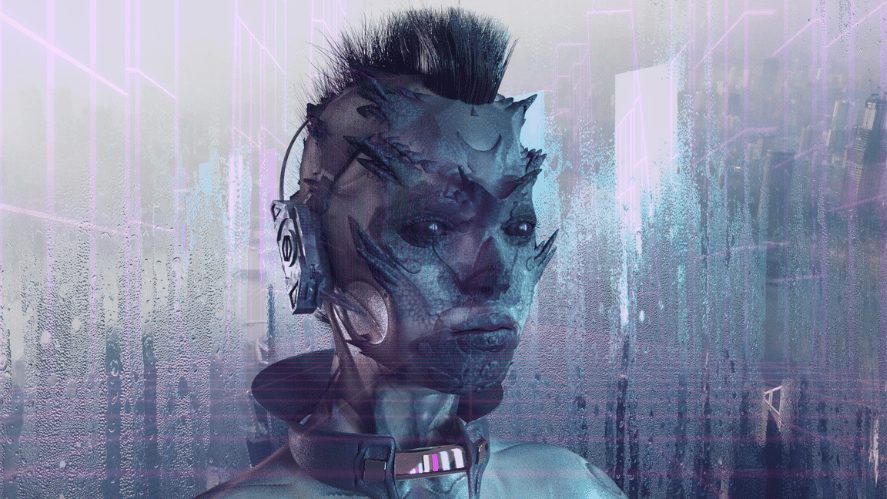
The impact of AI-driven character animation includes:
- Motion Capture: AI algorithms can analyze real-world motion data and apply it to in-game character animations. This technology provides more realistic and fluid movements, enhancing the visual appeal of games.
- Procedural Animation: AI can generate animations on the fly, eliminating the need for pre-recorded animations for every possible scenario. This allows for more dynamic and responsive character behavior.
AI technology allows game developers to customize characters using motion capture and procedural animation, improving the player’s experience.
7. Natural Language Processing and Voice Recognition
AI-powered systems can understand and respond to player commands and interactions through natural language processing and voice recognition. The impact of AI in this area includes:
- Voice-Controlled Gameplay: AI enables voice-controlled gameplay experiences, where players can interact with the game using voice commands. This adds a new level of immersion and convenience for players.
- Immersive Player Experiences: With AI’s ability to understand and respond to natural language, games can create more immersive and engaging narratives. Players can have meaningful conversations with in-game characters, further enhancing their overall gaming experience.
8. Adaptive Gameplay and Difficulty Balancing
AI algorithms can analyze player behavior and adjust gameplay difficulty accordingly, ensuring personalized challenges and enhanced player engagement. The impact of adaptive gameplay includes:
- Personalized Challenges: AI-powered adaptive gameplay allows games to tailor the difficulty level to individual players’ skill and preferences. This ensures that players consistently face challenges without feeling overwhelmed or bored.
- Enhanced Player Engagement: By dynamically adjusting the gameplay experience, AI keeps players engaged and immersed. This leads to longer play sessions and increased player satisfaction.
9. Intelligent Game Design Assistance
AI can assist game designers in generating ideas, balancing mechanics, and optimizing gameplay. The impact of AI in game design includes:
- Playtesting and Balancing: AI algorithms can simulate gameplay scenarios and analyze various metrics to provide valuable insights to game designers. This helps in fine-tuning game mechanics and achieving optimal balance.
- Design Suggestions: AI algorithms can generate design suggestions based on predefined rules and patterns. This assists game designers in exploring new ideas and creating innovative game experiences.
10. Dynamic Storytelling and Narrative Generation
AI algorithms can dynamically generate branching storylines based on player choices, leading to immersive and personalized narrative experiences. The impact of AI in game narratives includes:
- Branching Storylines: AI-driven narrative generation enables games to create branching storylines that adapt to player choices and actions. This adds replay value and enhances the sense of agency for players.
- Immersive Narratives: With AI’s ability to generate dynamic narratives, games can provide players with personalized story experiences. This deepens the emotional connection between players and the game world.
11. Enhanced Game Testing and Simulation
AI can simulate large-scale gameplay scenarios and optimize game mechanics, leading to more polished and enjoyable games. The impact of AI in game testing includes:
- Automated Playtesting: AI algorithms can simulate gameplay scenarios and test game mechanics in a more efficient and thorough manner. This helps identify potential issues and ensures a smoother gaming experience.
- Scenario Generation: AI can generate diverse and challenging gameplay scenarios, providing players with a continuous stream of fresh content. This extends the longevity and replayability of games.
12. Personalized Player Experience
AI algorithms can analyze player data to deliver personalized experiences and content recommendations. The impact of personalized player experience includes:
- Tailored Challenges: AI-driven game systems can adapt gameplay challenges based on individual player skill and preferences. This ensures that players consistently engage and motivate themselves.
- AI algorithms analyze player behavior and suggest game content like new levels, quests, and in-game items. This enhances player satisfaction and encourages further exploration within the game world.
13. AI-Generated Sound and Music
AI extends beyond visuals and gameplay. It can also create dynamic soundscapes and generate adaptive music based on gameplay events, enhancing the audio experience in games.
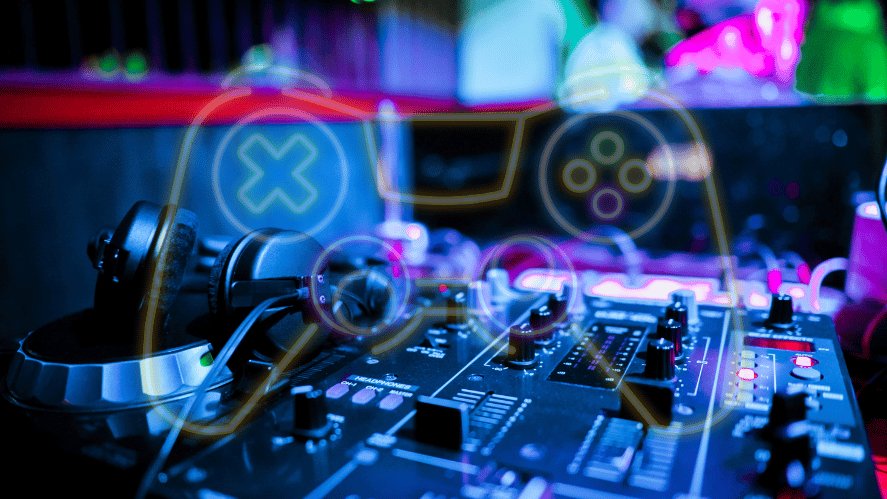
The impact of AI-generated sound and music includes:
- Dynamic Sound Design: AI algorithms can dynamically adjust sound effects based on in-game events and player actions. This creates a more immersive and responsive audio environment.
- Adaptive Music: AI can generate music that adapts to the gameplay, seamlessly transitioning between different moods and intensities. This enhances the emotional impact of games and adds to the overall atmosphere.
Through procedural audio and interactive sound design, AI contributes to the overall immersive experience of gaming.
14. Intelligent Game Analytics and Insights
AI can analyze player data to gain insights into player behavior, preferences, and engagement patterns, providing valuable information for game optimization. The impact of AI in game analytics includes:
- AI analytics can help game developers improve game design by finding trends, patterns, and areas to enhance. This ensures that games are tailored to the target audience’s preferences.
- Targeted Updates and Monetization Strategies: AI algorithms can analyze player data to identify opportunities for targeted updates and monetization strategies. This enables game publishers to provide relevant content and offerings to their player base, increasing player satisfaction and revenue.
15. Future Possibilities and Innovations
The future of AI in game development holds immense possibilities. AI technology and virtual reality (VR), augmented reality (AR), and other emerging technologies will transform the gaming industry.
AI will continue to shape the future of game development by pushing boundaries, enhancing player experiences, and unlocking new creative possibilities.
Conclusion
In conclusion, AI technology has brought about revolutionary impacts on game development. From procedural content generation to adaptive gameplay and intelligent game design assistance, AI has transformed various aspects of the gaming industry.
As AI continues to evolve and integrate with emerging technologies, the future of game development holds even greater potential. AI can assist game developers and publishers in creating improved games. These games will be more immersive, innovative, and personalized. As a result, AI-driven game development will shape the future.
Now that you’ve explored the impacts of AI on game development, you might be interested in further understanding how it influences the gaming industry. We have another article that delves into this topic, which you can access through this link.
Loading survey...

